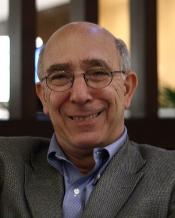Scientists are trying to use CRISPR to fix everything. What’s wrong with that?
By Emily McManus,
TED Ideas
| 05. 05. 2016
Untitled Document
An exploration of the ethics around CRISPR’s gene-snipping technology yields new insights on how to harness biotechnology that’s powerful enough to alter humanity.
In the world of biology — and coming soon to the wider world — enthusiasm and optimism continue to spread about CRISPR, a technology that allows precise editing of DNA.
If you’re a scientist who works with genes, it has already rocked your world: You can now snip an unwanted gene out of a DNA strand and replace it with another. Unlike the expensive blitz approaches of previously developed gene therapies, CRISPR techniques allow scientists to zero in on and knock out one problematic sequence. A process that used to be difficult, slow and haphazard has become a whole lot easier, faster and cheaper, opening up applications from medicine to agriculture. As journalist Carl Zimmer says: “Nobody’s found any place where it doesn’t work.”
CRISPR, an acronym for the unwieldy phrase “Clustered Regularly Interspaced Short Palindromic Repeats,” is now being tested with mosquitos to counter malaria and Zika; used to engineer disease-resistant livestock; and targeted to remove things like HIV and cystic fibrosis from human DNA. But more controversially, CRISPR has...
Related Articles
By Pete Shanks
| 02.27.2026
Last month, we published “The Shameful Legacy of Tuskegee” which focused on a proposed experiment in Guinea-Bissau. The study’s plan echoed the notorious Tuskegee disaster, withholding safe, effective vaccines against hepatitis B from some newborns while inoculating others. It was to be financed by the U.S. but performed by a controversial Danish team. That project provoked a multi-national outcry, leading to a remarkable response from the World Health Organization:
WHO has significant concerns regarding the study’s scientific...
By Jenn White, NPR | 02.26.2026
By Kiana Jackson and Shannon Stubblefield, New Disabled South | 02.09.2026
"MC0_8230" via Wikimedia Commons licensed under CC by 2.0
This report documents a deliberate assault on disabled people in the United States. Not an accident. Not a series of bureaucratic missteps. An assault that has been coordinated across agencies...
By Scott Solomon, The MIT Press Reader | 02.12.2026
Chris Mason is a man in a hurry.
“Sometimes walking from the subway to the lab takes too long, so I’ll start running,” he told me over breakfast at a bistro near his home in Brooklyn on a crisp...




